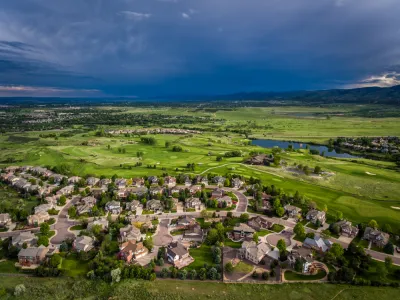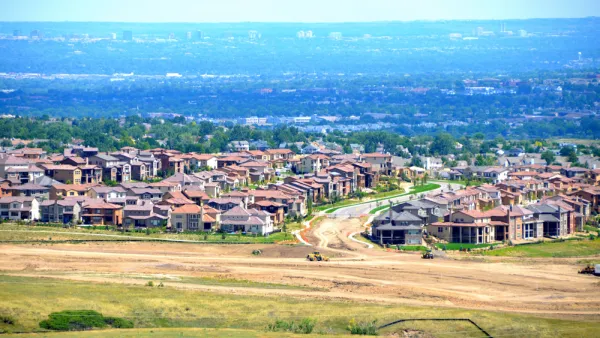Residents of the city of Lakewood have approved a ballot measure that caps annual residential development and requires City Council approval of all developments over 40 units.

"Voters in Colorado’s fifth-largest city on Tuesday approved a cap on residential construction that will be among the strictest in the metro area," reports John Aguilar.
Voters approved Question 200 with 53 percent of the vote, thus capping "the construction of new homes and apartments each year to no more than 1 percent of the existing housing stock in the city and would require City Council approval of large development proposals," according to Aguilar. According to Question 200, the "City Council must give explicit approval to any project that has at least 40 units."
Question 200 had a long route to the ballot box, clearing multiple legal hurdles before appearing before voters. The public approved the law despite most of the money spent on the campaign was devoted to defeating the measure.
Lakewood Mayor Adam Paul opposed Question 200, but most of the soundbites in the article are sourced from residents celebrating a victory.
Also voicing support for the vote, an opinion piece written a few days after voters approved Question 200 makes the case that the slow growth measures implemented by Question 200 will equal an effective climate action plan. Gary Wockner, the author of the opinion piece, hinges the argument on this paragraph:
Simple back-of-the-envelope math tells you that if you have less human consumers, you will have less population-caused GHG emissions. By slowing population growth, Lakewood will slow its GHG emissions — every city in Colorado could do the same thing, as could the state.
Wockner's argument in support of slow growth as a climate change mitigation measures has been directly refuted in the past.
FULL STORY: Lakewood voters pump brakes on home building, pass slow-growth initiative in special election

Analysis: Cybertruck Fatality Rate Far Exceeds That of Ford Pinto
The Tesla Cybertruck was recalled seven times last year.

National Parks Layoffs Will Cause Communities to Lose Billions
Thousands of essential park workers were laid off this week, just before the busy spring break season.

Retro-silient?: America’s First “Eco-burb,” The Woodlands Turns 50
A master-planned community north of Houston offers lessons on green infrastructure and resilient design, but falls short of its founder’s lofty affordability and walkability goals.

Test News Post 1
This is a summary

Analysis: Cybertruck Fatality Rate Far Exceeds That of Ford Pinto
The Tesla Cybertruck was recalled seven times last year.

Test News Headline 46
Test for the image on the front page.
Urban Design for Planners 1: Software Tools
This six-course series explores essential urban design concepts using open source software and equips planners with the tools they need to participate fully in the urban design process.
Planning for Universal Design
Learn the tools for implementing Universal Design in planning regulations.
EMC Planning Group, Inc.
Planetizen
Planetizen
Mpact (formerly Rail~Volution)
Great Falls Development Authority, Inc.
HUDs Office of Policy Development and Research
NYU Wagner Graduate School of Public Service




























